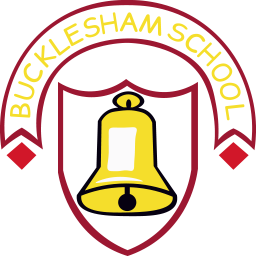Geography is a study of where places are found, what they are like and the relationships between people and their environments.
Geographical enquiry includes finding out about places and spaces, scale and connections between environments, physical and human Geography, environment and sustainability, culture and diversity.
Intent - what do we want children to learn?
At Bucklesham Primary School we believe that Geography helps to provoke curiosity and provides answers to questions about the natural and human aspects of the world and our local community. It is our intention that all pupils, irrelevant of needs, make sense of their physical world and their community through opportunities to explore, observe and find out about people, places, technology and the environment.
The curriculum is designed to ensure that teaching equips pupils with knowledge about diverse places, people, resources and natural and human environments, together with a deep understanding of the Earth’s key physical and human processes.
We seek to inspire in pupils a curiosity and respect about the world and its people which will remain with them for the rest of their lives, equipping them well as responsible citizens of the world.
|
Implementation - how will we achieve our intent?
Teaching and learning:
- Creative and inspiring lessons planned with opportunities for children to explore ideas and ask their own questions. We use CUSP to plan our Geography lessons.
- Exciting practical activities where possible to enable children to experience memorable events to embed the learning.
- Cross curricular links where possible, eg Beebots and technology in geography, DT projects linked to Geography.
- Displays linked to the learning up on the walls and clear, with maps and globes in every classroom to develop understanding of location and place.
- A knowledge organiser in books for children to refer to with clear ‘sticky knowledge’ ideas in the planning and in the books.
- Knowledge notes in books for each lesson with the key question at the top and dual coded to reduce cognitive load.
- An informal ‘assessment’ of knowledge at the start and end of the topic eg. What we already know. What we want to find out. What we have learnt. Either as individuals or as a class or group, and quizzing throughout the topic to ensure the children retrieve their knowledge each lesson.
Language development:
- New vocabulary embedded into children’s written work with a clear progression of topic-based geography vocabulary from Reception through to year 6.
- Opportunities for children to use more challenging vocabulary and challenged to spell it correctly.
- Examples of the new vocabulary embedded into other subjects such as English and in their verbal responses.
- Vocabulary noted in planning, displayed in the classroom and in books as part of the knowledge organisers and knowledge notes.
Recording:
- Well-presented work at the same standard as would be expected in an English book. Handwriting neat and correctly formed and work set out carefully in order to communicate learning clearly.
- A knowledge note stuck in for each lesson.
- A range of methods of recording in both subjects including tables, graphs, charts, maps, labelling, captions, diagrams, photographs, questions and explanations.
- Minimal use of worksheets unless absolutely necessary.
- Opportunities for all children to write longer pieces linked to their work in geography.
British values:
- Activities to promote a tolerance and respect for those of other cultures and beliefs and from other parts of the world.
- An understanding of the development of democracy, individual liberty and rule of law through looking at other countries and cultures.
Culture Capital:
- Opportunities for trips and visits to other places of interest linked to the geography topics.
- Visitors to the school linked to the geography topics to inspire and support children’s knowledge further.
- Use of artefacts, purchased or loaned, to support children’s learning.
- Whole school or class dressing up geography days to enable children to get a feel for a place.
Cross Curricular links:
- English- texts to support learning in Geography; vocabulary to be challenging and relevant; drama or role play opportunities linked to other cultures and countries.
- ICT- use of laptops for research and maps; use of programmable toys such as Beebots or Lego Wedo linked to the geography topic.
- Maths- development of recording using graphs or charts, particularly in KS2; coordinates.
- MFL- links to places studied.
- PE- orienteering opportunities; dance linked to a place.
- DT/Art- opportunities to develop knowledge of places and people through art work, cooking or DT.
- Music- songs, music or instruments from other places linked to geography.
- Science- investigations linked to a geography topic such as investigating temperatures; KS1 links to seasons and places.
|
Impact - what will it look like when we have achieved our intent?
|
Pupils are becoming enthusiastic geographers, equipped with the skills to use maps, globes, atlases and ICT to explore the world. They are developing an understanding of the human and physical geography and processes, of the local environment and the wider world, understanding how changes occur over time. They are developing a growing understanding of the impact of human geography on the world. They use geographical vocabulary accurately in written and verbal responses.
|
Websites for support
|
